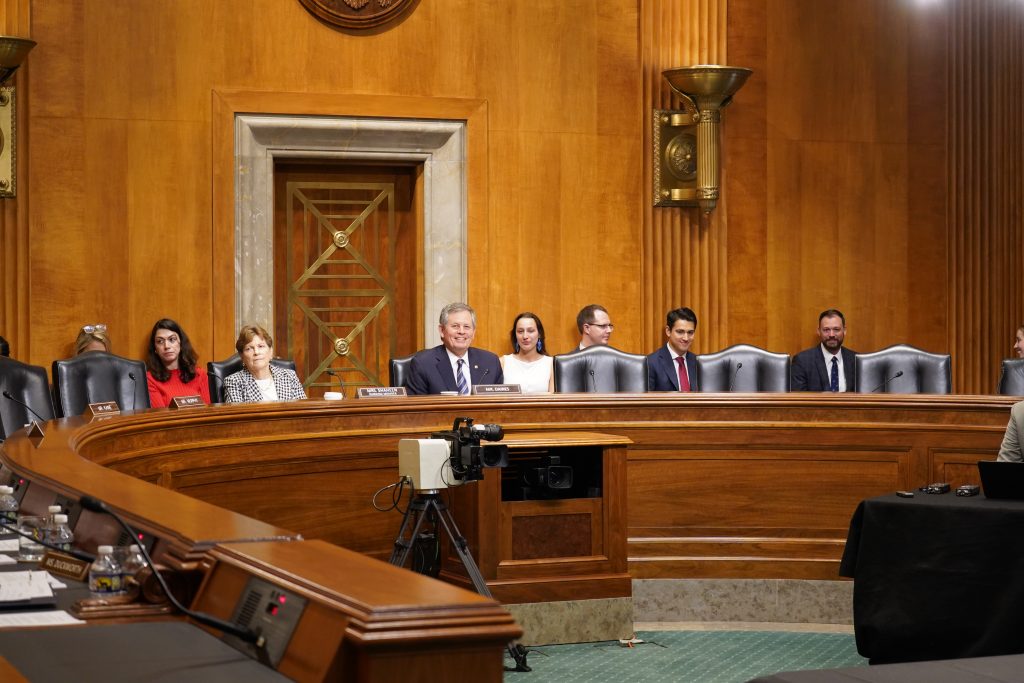Discusses Need to Reduce American Dependence on Russian Minerals and Repeal Jackson-Vanik Trade Restrictions
U.S. SENATE – U.S. Senator Steve Daines today chaired a Senate Foreign Relations Committee hearing, where he spoke with Deputy Secretary of State for Management and Resources Michael Rigas. The two discussed the need to decrease America’s dependence on Russian palladium and the importance of Central Asia’s natural resources.

Watch the full exchange HERE.
Daines emphasized the need to decrease American dependence on Russian palladium:
Daines: As you know, palladium is an incredibly important metal used across the U.S. manufacturing industry, but is of particular importance to the production of munitions, advanced electronics, and the automobile industry. In fact the only primary producer of palladium and platinum in the United States is in my home state of Montana. There’s three places that mine it: Russia, South Africa, and Montana. In order to drive that mine out of business and increase the American supply chain vulnerability, the Russians have flooded the market with palladium, driving down prices, and forcing Montana’s Stillwater mine to lay off around 700 hardworking employees. If we don’t take action to curb Russian dumping and price manipulation, the mine and the important jobs it supplies will be permanently lost, and American supply chains will be all that much more vulnerable. Russian palladium is not only costing us American jobs, the irony here is it’s helping fund the Russian’s war against Ukraine. Mr. Rigas, how can the State Department work with Congress and across the administration to decrease American dependence on Russian minerals like palladium, while at the same time protecting American workers from Russian market manipulation?
Rigas: I think the President has talked about not necessarily this exact issue, but basically this issue generally with how we need to onshore critical supply chains for national security purposes, how he wants to streamline the permitting process so that things that used to take years, we could allow permitting for them in weeks or months.
Daines criticized the Jackson-Vanik trade restrictions:
Daines: Regarding Central Asia, it’s vitally important. It’s a region that’s in a tough neighborhood. It’s rich in natural resources. They’re surrounded by Russia, China, Iran, Afghanistan, and they’re working very hard to modernize their economies and improve relationships with the United States. I visited all five of the Presidents in those respective five Central Asian countries in the last 14 months, and they want to work with the United States. Unfortunately, Central Asia is still subject to very irrelevant Cold War-era trade restrictions and can only trade with the United States on a waiver basis. These is the Jackson-Vanik trade restrictions. They prevent any permanent investment and they become a major hindrance to getting things done in Central Asia and to increase American prosperity and security. In order to take advantage of the possibilities for stronger partnerships between the United States and Central Asia, we must address this trade issue and frankly bring up this relationship into the 21st century. Mr. Rigas, I’m working with my colleagues in this committee to repeal the Jackson-Vanik restrictions. Would you commit to working with myself, my office, and the committee here to work to see these restrictions end and thereby open up a stronger relationship with Central Asia and the United States?
Rigas: Certainly, Senator.
###
Contact: Matt Lloyd, Gabby Wiggins
